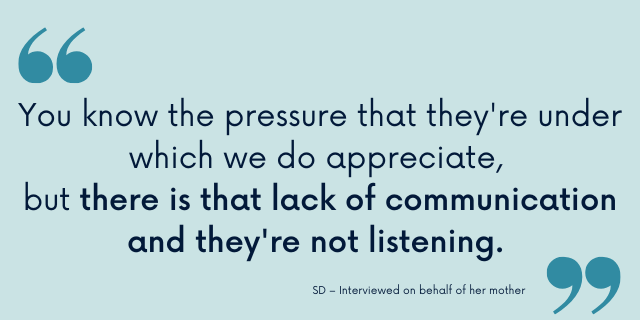Carers Voices
DCA has been involved in a “Carers Voices” project in partnership with Dorset HealthCare and HealthWatch Dorset. The aim of the project was to collect feedback from Carers about their experiences whilst the person they care for is in hospital.
In 2021, there were almost seven million carers in the UK – that is one in ten people. This is rising. Out of the UK’s carers, 42% of carers are men and 58% are women.

We were very lucky to be actively engaged in creating videos of Carers sharing their stories on the subject.
These interviews have been turned into video and audio clips that will be used by Dorset HealthCare in the training of all hospital staff to improve their understanding of the lived-experience of Carers in Dorset.
Thank you to all the groups that helped us find Carers to interview and to the Carers themselves,
who gave up their time to share their stories with us.
'Avril's Story'
'Howard's Story'
'Susan's Story'
'Amanda's Story'
'Marion's Story'
'Erikas Story'




A carer can be someone of any age, who may be in paid work or not, who supports a friend or family member due to their illness, disability, frailty, mental health or substance misuse.
Further Support:
CRISP – The Carers Information Service supports family/unpaid carers looking after someone who would not be able to manage without their support.
Carer Support Dorset – Illness, disability and old age; there are many reasons why 3 in 5 of us will need to look after a loved one and become a carer at some point in our lives. It can be extremely rewarding, but it can also be tough. Operating across Dorset and Wiltshire, Carer Support can help.
OurDorset – click here to link through to the previously promoted Carers Week.
2022’s theme was ‘make caring visible, valued and supported’.
Carers Week is an annual national campaign to raise awareness of caring. It aims to highlight the challenges that unpaid carers face, recognise the valuable contribution carers make to our communities and to support people who do not think of themselves as a carer to recognise themselves as one and access support.
